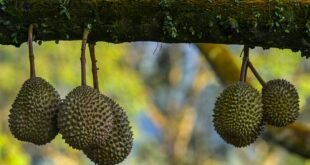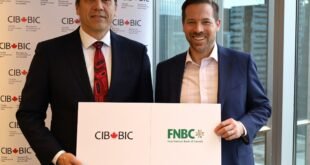Impact of US Tariffs on Thailand’s Export Sector
The proposed 36% tariff by the United States on Thai goods is expected to significantly affect Thailand’s export competitiveness, according to economists in the banking sector. This potential tariff could have far-reaching consequences for Thailand’s trade relations and economic stability.
Potential Outcomes of Trade Negotiations
Kobsak Pootrakool, senior executive vice-president of Bangkok Bank, suggests that the best outcome Thailand can hope for in negotiations with the US is a tariff rate of 20-25%, similar to what Vietnam has secured. He warns that if the final rate exceeds this, it would place Thai exporters at a severe disadvantage in international markets.
“The most pressing concern is that Vietnam already secured a 20% tariff rate. If Thailand faces a significantly higher tariff, foreign companies planning investment here may shift their investments to Vietnam, inflicting long-term damage to the Thai economy,” said Mr. Kobsak.
The US accounts for 18% of Thailand’s exports. If the 36% rate is implemented, exports to the US could drop to 10% of the total, weakening bilateral trade relations over the long term. To mitigate this impact, Mr. Kobsak recommends that the government act swiftly by expanding into new export markets and offering export loan guarantees for small and medium-sized enterprises (SMEs).
Agricultural Considerations
For some crops such as soybeans, which Thailand already imports in large quantities, tariffs may be eliminated. However, for other agricultural and livestock products, the government may need to negotiate special terms or allocate budgetary support to assist local producers.
Despite a slowing economy, the baht is at its strongest level in 2-3 years, due primarily to its inverse correlation with the US dollar. This strength could provide some relief, but it is not a substitute for proactive trade strategies.
Diversification and Support for SMEs
Mr. Kobsak recommends that exporters diversify into markets such as India, the Middle East, China, and Southeast Asia. He also urged the government to guarantee export loans for SMEs through the Thai Credit Guarantee Corporation while supporting them through government procurement programmes.
A Give-and-Take Strategy
Pipat Luengnaruemitcha, chief economist at Kiatnakin Phatra Financial Group, suggests that the Thai government may need to adopt a give-and-take negotiation strategy rather than aiming for a win-win outcome. Following the US announcement to maintain a 36% tariff on Thai exports, he notes that the US may expect Thailand to open its market further to American products.
This could involve reducing import tariffs, removing non-tariff barriers, and addressing fraudulent origin labelling. Mr. Pipat suggests that Thailand gradually liberalise sensitive sectors, particularly agriculture. While agriculture is a pillar of the Thai economy, the government could implement measures to mitigate any short-term impact.
Strengthening Competitiveness
Thailand should also focus on strengthening its competitiveness by attracting high-value and high-tech investments through incentives such as R&D support and tax credits. These incentives could encourage electric vehicle parts manufacturing, artificial intelligence hardware production, and data centres.
Mr. Pipat emphasizes the need for an integrated task force comprising the Finance, Commerce, and Agriculture ministries collaborating with the private sector. Clear communication with all stakeholders, including the US and international investors, about Thailand’s commitment to economic development is crucial.
Tourism as a Buffer
Sathit Talaengsatya, an economist at UOB Thailand, notes that if higher US tariffs are applied to Thai exports, the greatest impact would likely be felt in electronics and electrical components, where Thailand could face intensified global competition.
However, Thailand maintains a competitive edge in tourism and hospitality. Mr. Talaengsatya suggests developing these sectors into high-value service areas such as wellness tourism to offset the impact on manufacturing exports.
By focusing on diversification, strategic negotiations, and leveraging its strengths in tourism, Thailand can navigate the challenges posed by the proposed US tariffs and work towards a more resilient economy.
 Info Malang Raya Its All About World News
Info Malang Raya Its All About World News




